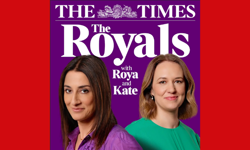I rather liked Roy Greenslade’s quote in the Daily Telegraph on Tuesday 28th March 2006. In the context of the media revolution taking place, and the need for a change of mindset amongst traditional newspaper publishers, Mr Greenslade suggests that we should ‘Preach the Reach.’
Put it this way, if your business model, going forward, is based upon growth of daily paid for titles, then you are either close to retirement and don’t wish to rock the boat, or you’ve just completely missed the point. Either way, shareholders will ultimately be less than delighted.
This ‘reach’ idea relates to audience delivery, and the ability to demonstrate, to valued advertising customers, that our products, whether paid or free print titles, websites, television, radio, magazines, leaflets and any channel I might have missed, can reach a desired target audience. The rapid fragmentation of media channels, coupled with the eclectic and sophisticated media consumption behaviours of the public, mean that our traditional approach is redundant.
In the case of the Guardian Media Group’s (GMG) regional newspaper division in Greater Manchester, we market a broad portfolio of media channels.
Our portfolio
In print, the flagship Manchester Evening News (MEN) is embedded with 23 quality paid and free, weekly and bi-weekly titles, a number of weekly and monthly magazines, a stable of annual guide books and MEN Direct (our leaflet and insert operation delivering over 4m items every week). Online, we have an award winning internet site in www.manchesteronline.co.uk. And, the most exciting recent development is on air – Channel M Television, Manchester’s own TV station, available free to air via existing analogue aerials (Channel 39), on ntl:cable (Channel 26), and now broadcasting on the Sky Digital platform (EPG No 203). Get on Sky now and experience a superb city television station!
There is no doubt that we reach more adults in Greater Manchester today, than at any other point in our long history. We continue to develop media opportunities that engage consumers, at a time and place that is convenient to them; this means that our readers, viewers, surfers and listeners (GMG Radio operates the very successful Smooth FM in this part of the world too) are in control and that underpins the strategy we are pursuing. It is consumer pull and not business push. It is our customers that will determine the relative power amongst the media we own.
Measuring our audience reach, across multi-media portfolios is a challenge facing the entire media industry and, via the Newspaper Society, we are investigating a number of potential ways forward in establishing a common currency. More on that in a later issue perhaps! (Editor?)
For now, the omnipotent Manchester Evening News dominates and is synonymous with Manchester life. This will continue, and our simple vision is to return this great newspaper to the position of the UK’s most widely available and widely read regional daily newspaper.
Paid for press: long term decline
Analysis of the Western World’s paid for regional daily (and national) press reveals a continuous historical decline in sales over the last 40 years; this has averaged a fall of around 5% per annum. Take the line out twenty years, and, in our case, it is arguable that, despite investing millions of pounds in canvassing, CD’s and give-aways (a strategy of diminishing returns), our Canute-like efforts will be in vain.
I, for one, am optimistic looking ahead, and see a bright future for any traditional publisher prepared to meet the challenge. The population has already indicated their intention – bring it to us and we will consume – there is no longer time in our hectic lives to seek your product, keep a close eye on the quality though!
Metro is a fine example of a game changing strategy. The stigma of free has largely been eliminated, and this truly powerful free daily commuter title connects perfectly with the UK’s Urbanites – an advertiser’s dream prospect. It is simply a bloody good newspaper without a cover price.
Could this hold the key to future prosperity for those regional newspaper companies that have got used to donning the proverbial tin helmet every six months as the ABC figures are released? In Manchester, we believe it is inevitable. Go and extrapolate that sales line to 2025.
Let us fast forward to the future, innovate now and be able to confidently state that we are growing our readership, delivering a new audience that enriches the traditional profile of a regional daily paper’s readership. For too long, we have sought to explain our performance. Advertisers, and their appointed agents, have long called for solutions and innovation to what is widely and tediously peddled as the death of the paid for press. Let us be serious here. Quality journalism, local campaigning, and our industry’s understanding of the intrinsic strength of local and regional press brands in local communities will always command a premium. The MEN for example, as with other great regional daily newspapers, is a powerful voice. One with reach and influence amongst the business leaders and politicians who shape the regional agenda. It is incumbent on us however, to find new routes to new readers and audiences, to build our total reach irrespective of the channel – media neutrality one might say!
MEN Lite
In Manchester, we trialed the free MEN Lite (a product aimed at the young, educated and mobile commuter) for twelve months from March 2005. On average, there are around 150,000 people living, working and visiting the city centre each day. Using a tightly controlled distribution model, we distributed 11,000 copies each weekday. When we took into consideration a city centre sale, of the paid-for editions, of 7,000 copies, this enabled us to develop a strategy in which lies a significant growth opportunity.
MEN – free in city centre
On May 2nd, 2006, we launched the Manchester Evening News into the city centre as a quality free newspaper. 50,000 copies Monday to Friday. Via a scientifically designed distribution area, the MEN is now available daily at newsagents, rail and tram stations and from selected distributors after 11am. Aligned to this initiative, we are conducting sophisticated market research to help guide our strategy and reflect our growing ABC1 readership.
This is the Manchester Evening News. It delivers the identical quality of the copy you pay 35p for outside this crucial city centre urban market – it is the same paper, it will deliver the same readers per copy and time spent reading. Quality is not an issue, journalistic integrity is not compromised – we are reaching a hitherto non-press consuming generation with a progressively re-designed Manchester Evening News, more relevant to the future and strengthened by its past. We are going out to meet our future readers with a bold message.
This is Manchester, this is our city, we have been here for 150 years and will be for another 150 years and beyond. We recognise and understand the time starved lives you lead, and endeavour to provide the information and advertising in whichever format is convenient, timely and relevant.
Does this herald the first stage of a totally free Manchester Evening News? That is not our intention, and it is in our own hands as to whether people will be prepared to pay for news and information in print in this digital era of ubiquitous news provision and fierce competition for eyeballs. Our core competencies lie in quality local journalism and community intelligence; this will always be a saleable product.
In his weekly article, Colin Grimshaw, deputy editor of Media Week (21-28 March 2006, page 21), stated that ‘more radical thinking is needed. Maybe publishers need to stare into the abyss. With the print vehicle stripped of classifieds, publishers are in a better position to offer the streamlined, one-section newspaper that busy readers seem to want on weekdays. Publishers may not be able to put off making difficult decisions for much longer.’
Sharing Colin’s unambiguous view is quite liberating and exciting. If our future profits are to be generated solely through costcutting to counter declining revenues, then we are actually dead already, we just haven’t realised it. Sound cost control, coupled with investment or re-investment elsewhere, could well lead to new market opportunities. As we have discovered first with Metro and latterly with MEN Lite, the answer is sometimes right under your nose.
It is one potential solution – it is also ‘early doors’, as we say in these parts, and yet the risk of doing nothing outweighs the risk of calculated action. Attracting and retaining good people, particularly in sales, is the devil’s own job when all you have to offer is decline management strategies. We have stared into our abyss and don’t much like the view.
This is one way we are meeting the challenges ahead. This is the Mancunian way!
FEATURE
Turn & fight
What do you do when sales of your core product are in long term decline? Do you accept the inevitable, and seek to manage that decline as gracefully as possible, or do you resolve to do something about it. The Manchester Evening News has chosen the latter path and taken radical action. Mark Rix explains why.










